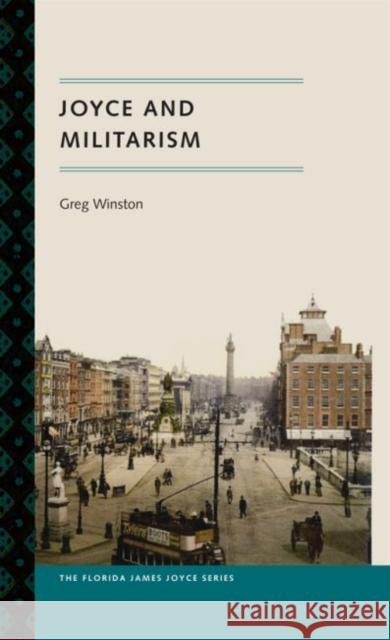Joyce and Militarism » książka
Joyce and Militarism
ISBN-13: 9780813061344 / Angielski / Miękka / 2015 / 316 str.
Joyce and Militarism
ISBN-13: 9780813061344 / Angielski / Miękka / 2015 / 316 str.
(netto: 106,80 VAT: 5%)
Najniższa cena z 30 dni: 111,68
ok. 22 dni roboczych.
Darmowa dostawa!
Greg Winston has produced a marvelous, deeply researched, and lucid story of Joyce s exploration of the personal and social effects of the European cult of militarism. This is a significant contribution to interpretations of Joyce, capitalizing on both cultural studies and political approaches. It is loaded with scholarly discoveries that will illuminate readings and delight readers. R. Brandon Kershner, editor ofJoyce and Popular Culture The military and their domestic counterparts, the police, were omnipresent in the world of James Joyce, as was militarism in the literature and society that formed him. Winston ably traces the impact of these realities on the literature Joyce created, works that, as acts of resistance, ultimately move toward imaginative demilitarization. Thomas Jackson Rice, author ofCannibal Joyce
Each of James Joyce s major works appeared in a year defined by armed conflict in Ireland or continental Europe: Dublinersin 1914 at the outbreak of the First World War;A Portrait of the Artist as a Young Manin the same year as the 1916 Easter Rising;Ulyssesin February 1922, two months after the Anglo-Irish Treaty and a few months before the outbreak of the Irish Civil War; andFinnegans Wakein 1939, as Joyce complained that the German army s westward advances upstaged the novel s release.
InJoyce and Militarism, Greg Winston considers these masterworks in light of the longstanding shadows that military culture and ideology cast over the society in which the writer lived and wrote. The first book-length study of its kind, this articulate volume offers original and interesting insights into Joyce s response to the military presence in everything from education and athletics to prostitution and public space."











